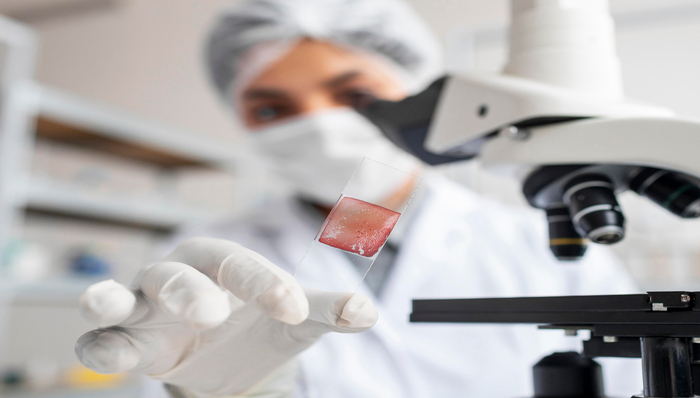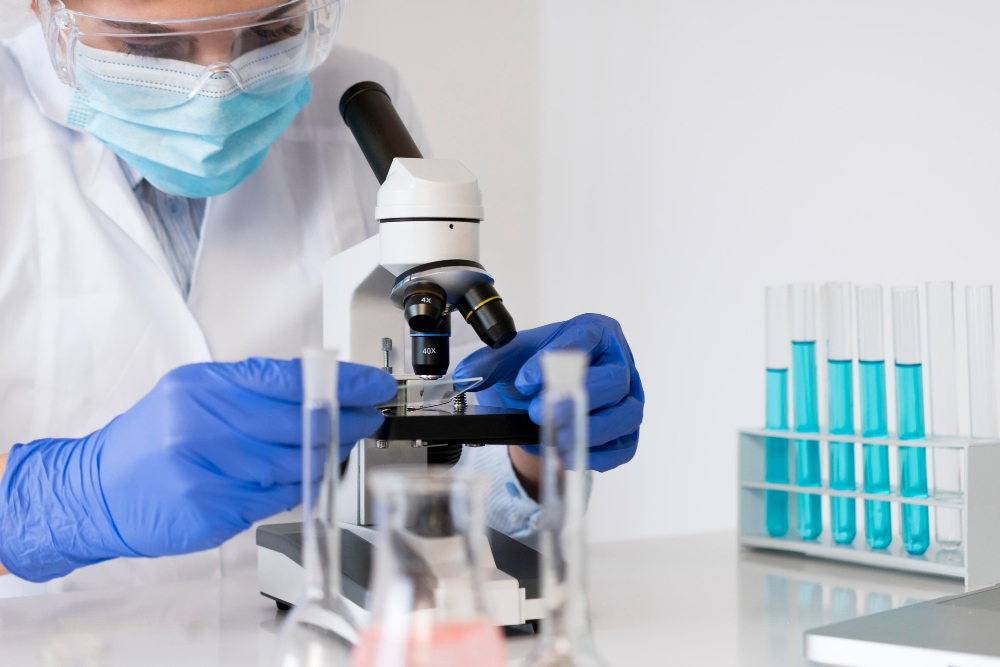What is Clinical Pathology?
- A clinical pathology is a place where specimens from the human body are collected, processed, examined, or analyzed. Clinical laboratory specimens include whole blood, plasma, serum, urine, cerebrospinal fluid, faeces, body fluids, etc.
- Laboratory testing plays a major role in the clinical decision-making by the physician and in the overall patient management.
- Clinical pathology is a medical speciality that focuses on the analysis of bodily fluids to help diagnose diseases or ensure long-term health.
- Clinical pathology plays an important role in health care. It involves analyzing samples such as a patient’s blood, urine, and other bodily fluids to detect abnormalities that may indicate disease. Clinical pathologists work as medical investigators, using laboratory tests to uncover clues about a patient’s health.
- They work behind the scenes using advanced technologies and methods to analyze samples, helping physicians make informed decisions about diagnosis and treatment. From everyday health checkups to the management of chronic diseases, this type of pathology plays an important role in patient care.
Other branches of pathology include:
Anatomic pathology: The study of tissues, organs, and tumours.
- Cytopathology: The study of cellular changes and everything related to cells.
- Forensic pathology: Perform autopsies to determine the cause of death and legal pathology tests.
- Molecular pathology: The study of DNA and RNA sequencing, genes, and genetics.

Prime Purpose of Clinical Pathology
- Understand the problem: The study of pathology helps the doctor in the investigation, interpretation, and management skills of the pathologist. This process helps them understand the cause of the problem and accordingly, doctors work to find a cure.
- Run analysis: Analyzing clinical data and research data to obtain correct results is an integral part of clinical pathology. Generally, the result is 100% effective and rooted in proper research. For this purpose, they take the help of medicines or any chemicals and equipment to conduct any experiment.
- Manage lab: The most important goal of pathologists here is to manage a successful laboratory where all the necessary equipment is present. If any equipment or lab instrument gets damaged then the higher authority will have to be informed to replace it.
- Cure patient: Clinical pathology works with patients who are admitted to hospitals. Moreover, curing such a patient is the main objective of pathologists. Furthermore, they work for the general patient population with the help of their investigative skills and management skills.
- Creation of vaccines: The improvement skills and management skills of pathologists help them to create a better future. However, it is possible to make drugs or vaccines for rare diseases.
Importance of Clinical Pathology
Treatment Monitoring:
- Clinical pathology plays a vital role in monitoring the effectiveness of treatments and interventions. Regular testing of biomarkers and other indicators allows healthcare providers to assess how well a patient is responding to therapy and make necessary adjustments to the treatment plan.
Preventive Medicine:
- Clinical pathology is involved in preventive medicine by identifying risk factors and markers associated with certain diseases. Screening tests and assessments help in detecting conditions at an early stage, allowing for timely interventions and preventive measures.
Infectious Disease Control:
- Clinical pathology is crucial in the identification and monitoring of infectious diseases. Microbiology and serology tests help in diagnosing infections, tracking outbreaks, and implementing control measures to prevent the spread of contagious diseases.
Medical Education:
- Clinical pathology plays a significant role in medical education, and training future healthcare professionals in laboratory medicine and diagnostic techniques. Pathology courses provide essential knowledge for physicians, nurses, and other healthcare practitioners involved in patient care.
Chronic Disease Management:
- For chronic conditions such as diabetes, kidney disease, and cardiovascular disorders, clinical pathology provides essential monitoring tools. Blood tests and other diagnostic assessments help in managing these conditions, optimizing treatment plans, and preventing complications.
Read Also
References
- https://www.cartercenter.org/resources/pdfs/health/ephti/library/lecture_notes/health_extension_trainees/generalpathology.pdf
- https://documents.cap.org/documents/overview-anatomic-clinical-pathology-medical-students.pdf


3 thoughts on “An Introduction to Clinical Pathology”